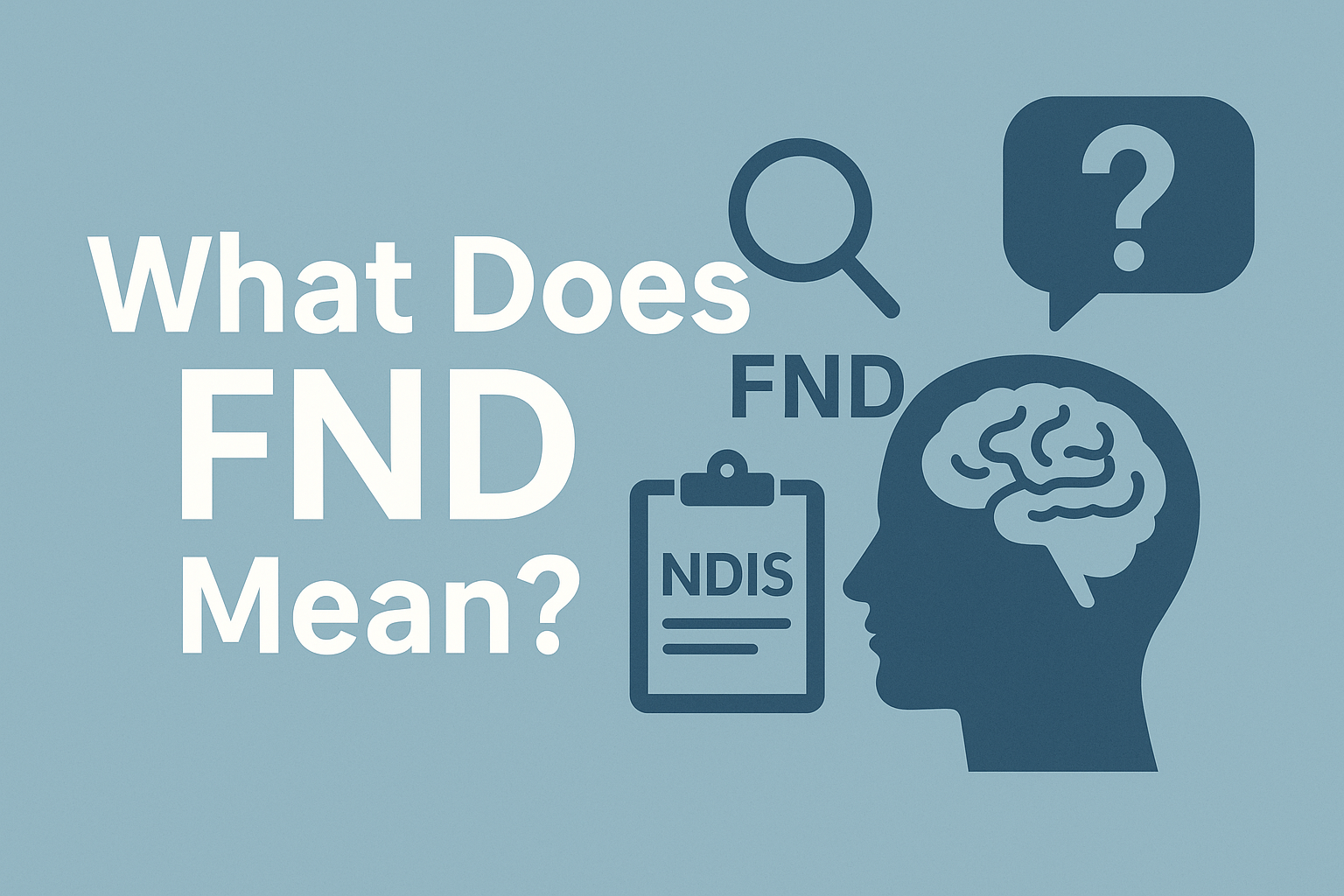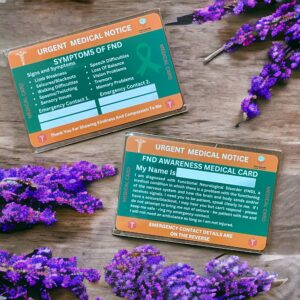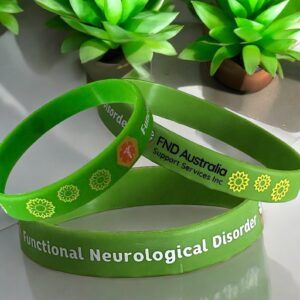
What Does FND Mean? Understanding the Rising Interest in Functional Neurological Disorder
Have you ever searched “FND medical abbreviation” or “What is FND?” You’re not alone.
Searches for “FND medical abbreviation” and related queries like “FND Australia” are spiking — and it’s no surprise. More Australians are beginning to ask questions about Functional Neurological Disorder (FND), its causes, and how it connects to daily life, disability, and support systems like the NDIS.What Is FND?
FND stands for Functional Neurological Disorder. It refers to a group of symptoms — including seizures, limb weakness, tremors, or blackouts — that affect how the nervous system functions, even though standard medical tests often show “normal” results.
Unlike epilepsy, for example, FND is not caused by electrical disturbances in the brain. Instead, it’s often linked to the brain’s way of processing stress, trauma, or internal signals — making it complex and frequently misunderstood.
Why Is Interest in FND Growing?
Based on recent search trends:
- “FND medical abbreviation” is a breakout query
- Searches for neurologists and non-epileptic seizures are climbing
- There’s increased curiosity about how FND fits within the National Disability Insurance Scheme (NDIS)
This suggests more people are either receiving a diagnosis or looking for answers — especially around causes, treatment, and support.
Diagnosis and the Role of Neurologists
A diagnosis of FND is typically made by a neurologist. But it can be a long and frustrating journey. Since symptoms mimic other neurological conditions — like epilepsy or MS — many people feel dismissed or misdiagnosed before reaching clarity.
The good news? Awareness is growing, and with the right team, FND can be managed.
How Does FND Affect Daily Life?
People living with FND may struggle with:
- Walking or movement
- Speech
- Sensory issues
- Blackouts or non-epileptic seizures
- Fatigue and chronic pain
It’s an invisible condition, which means others often don’t see the impact — but that doesn’t make it any less real.
Can You Get NDIS Support for FND?
Yes, FND may be eligible under the NDIS, particularly if it results in permanent and significant disability. Support often focuses on daily living assistance, mobility, mental health, and therapy.
But navigating NDIS for FND can be tricky — especially when the condition isn’t widely understood. That’s why having a strong diagnosis and medical documentation is essential.
What to Do If You’ve Just Been Diagnosed
- See a neurologist or FND-informed GP
- Get a clear diagnosis in writing
- Connect with support communities (online or in person)
- Consider speaking to an NDIS advocate
- Look into therapy (e.g. physiotherapy, psychology, OT)
Final Thoughts
The rise in searches tells a story: people want answers. Whether you’re newly diagnosed, supporting someone with FND, or simply curious — now is the time to build awareness, break stigma, and support those living with invisible disabilities.
Related Reading & Helpful Resources
- NDIS and Functional Neurological Disorder – Advocacy Factsheet (Australia)
- Neurologists who understand FND – A starter guide
- What is a PNES (non-epileptic seizure)?
- Tips for explaining invisible disabilities to others
Best selling products
-
Functional Neurological Disorder Lanyard & Corporate Medical Alert Card With Holder
$13.00 – $25.00 -
Not All Disabilities Are Visible – 6”x6” Vinyl Car Window Bumper Sticker Decal For Hidden Disability Awareness
$8.00 -
Functional Neurological Disorder Silicone Medical Alert Bracelet
$13.00 – $35.95 -
FND Messed With The Wrong Chick & Butterfly Warrior Design Unisex T-shirt
$55.00 -
“IM FINE” Functional Neurological Disorder Warrior T-Shirt
$45.00 – $55.00
- What Does FND Mean? Understanding the Rising Interest in Functional Neurological Disorder
- Is Autism a Hidden Disability? What You Need to Know
- What Are Examples of Hidden Disabilities?
- What Is the Hidden Disabilities Sunflower? A Guide to Invisible Disabilities
- Living with a Hidden Disability: What You Don’t See, Still Hurts





